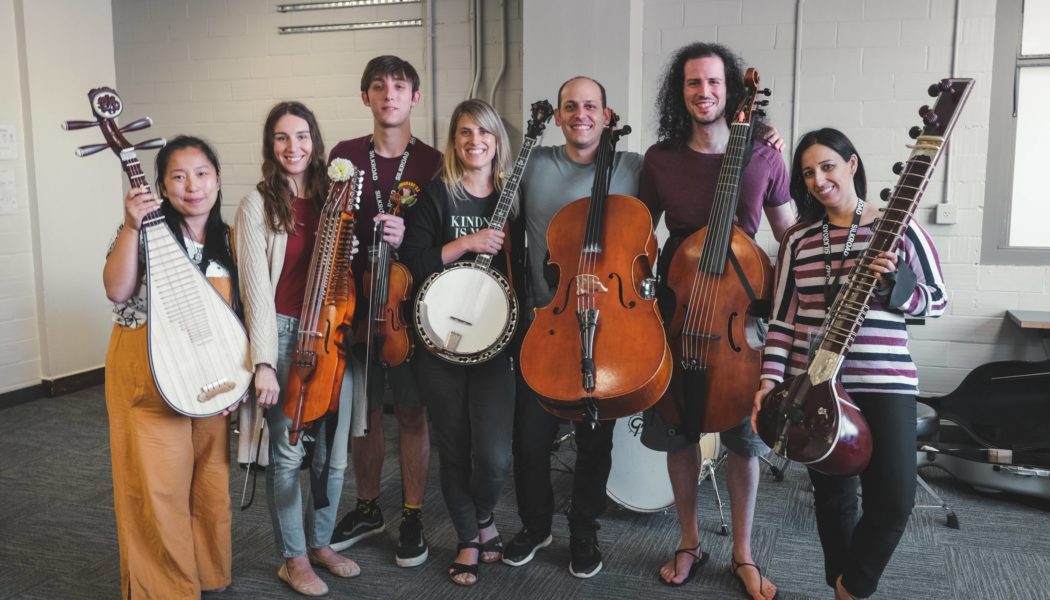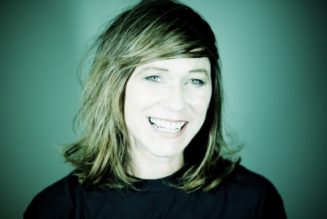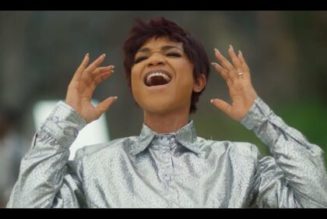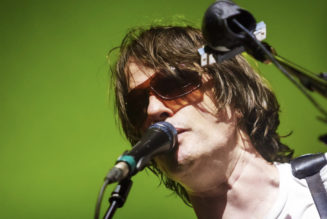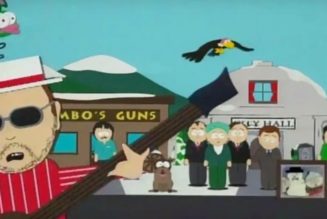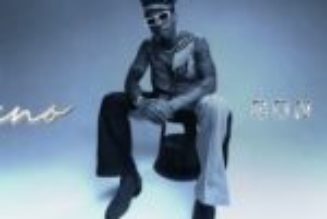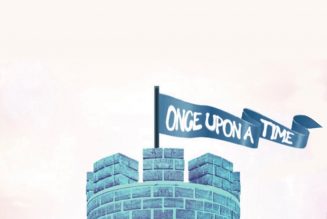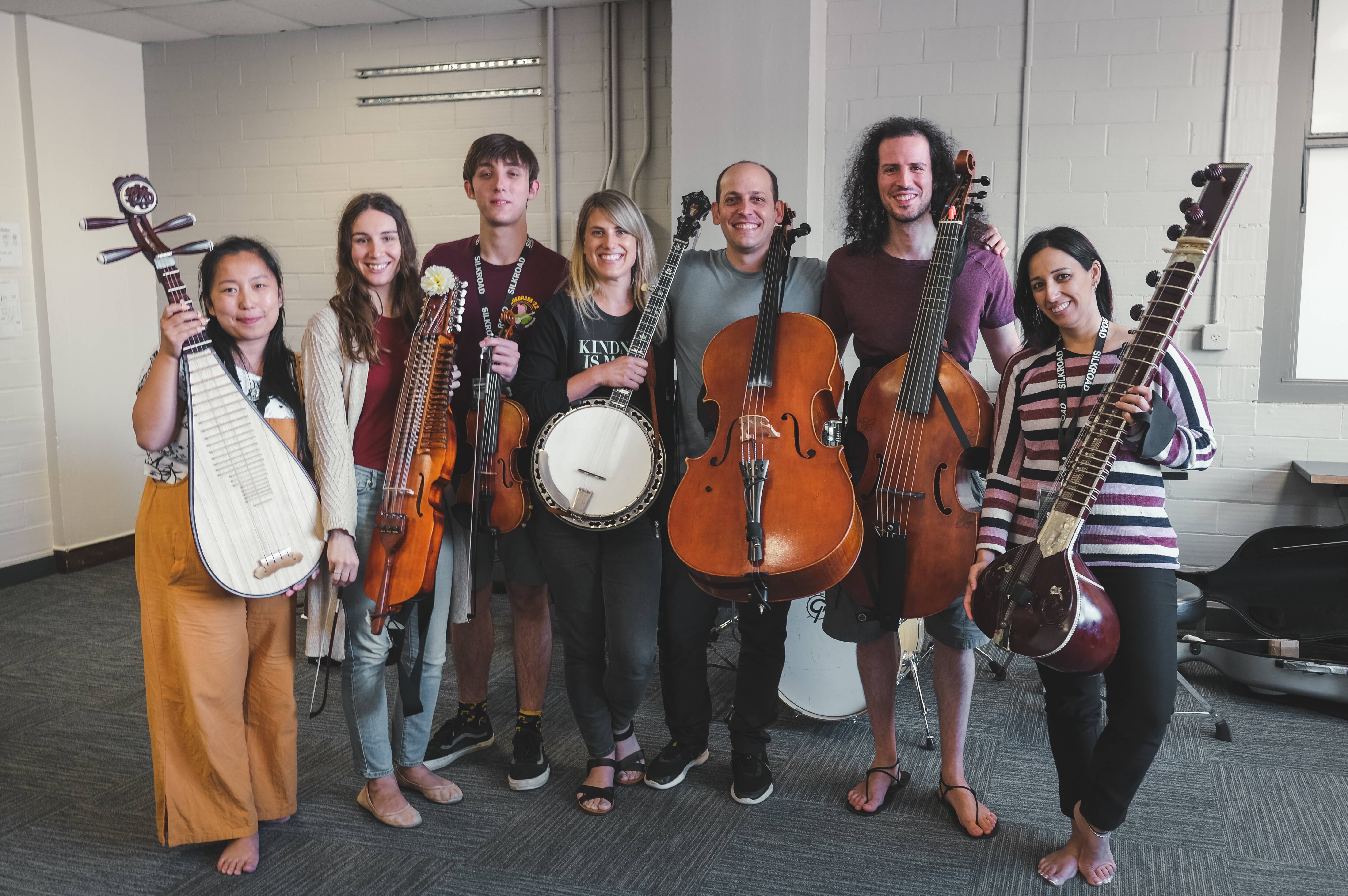
For fans of cross-cultural musical exploration and for those of us who live at the intersection of cultures, the Silkroad Project is something special. Silkroad was started in 1998, when cellist Yo-Yo Ma and a group of diverse artists came together to see what would happen when musicians from across the lands of the ancient Silk Road would get together and play. The experiment was a smashing success and gave birth to the touring ensemble Silkroad, based right here in Boston. On Sunday, Silkroad kicks off its Global Musician Workshop. GBH’s All Things Considered host Arun Rath caught up with Mike Block, director of the Global Musician Workshop, about what’s planned for the week.
Arun Rath: So just dive right in with an overview for us. We’ll talk about the music in more detail, but first, what is happening at the Global Musician Workshop? And give us a sense of the scale.
Mike Block: It’s a very exciting community of musicians. We’re going to have 70 participants that all play styles of music and instruments from around the world. So these participants have been chosen out of 175 applicants that we had from 45 countries. It’s all led by this team of world class faculty, many of whom are my colleagues in the Silkroad Ensemble and other friends from across the world. And basically the 80 of us are going to be together for seven days at the New England Conservatory of Music. We’re putting together one-of-a-kind collaborations that brings Indian musicians, Chinese musicians, Persian musicians and African musicians all together in bands that, in their own ways, are going to be mirroring the evolution and identity of the Silkroad Ensemble over and over again through the week, creating these new arrangements and collaborations.
The short answer to your question, Arun, is actually I don’t know what’s about to happen, but that’s kind of the most exciting part of just getting a whole bunch of people in the same place together.
Rath: It just sounds awesome on every level. So what would a workshop be like? Say, I’m like a tabla player coming from India. What are the kind of things that are happening?
Block: Right. So every participant’s coming from a different place. And the idea is that in order to learn more and engage with the world of music, we have to learn different musical languages, and the best way to learn a new language is through immersion. Every participant is getting this immersive experience in small bands led by the faculty. These faculty bandleaders are going to guide somebody — let’s say a tabla player from India. Maybe that tabla player’s playing with an African musician or a Scottish musician, and they’re going from zero to performance with the guidance of their faculty bandleader. So the idea is, no matter where you’re coming from or how amazing you might be, there’s actually something new to learn in a new language.
The point of learning new musical languages for me is kind of twofold, because I feel like there’s new things we can learn about ourselves and new things we can express well. We have new languages and new tools to do that. Then the whole point of that is to have new people to communicate with. So that’s the process that everybody’s going through, whether they’re a classical violinist, an Indian tabla player or a Chinese pipa player. We’re all there to learn new musical languages, connect with the world, and learn more about ourselves. Basically, my goal as director is humbly to have all 70 people leave, like, actually a different person than maybe they came. So we’re really aiming for this transformative experience and the public performances at Jordan Hall at the New England Conservatory, that’s our public showcase where the rubber meets the road and people are doing all this on stage for the first time.
Rath: Those concerts, which are open to the public, kick off Tuesday the 8th, right?
Block: Right. On Tuesday, Aug. 8th the faculty are going to be doing a big collaborative performance. Some of my favorite musicians in the world will be a part of this. Kala Ramnath, a Hindustani violinist whose most recent Boston performance was with the Indian tabla player Zakir Hussain. We’ve also got Jamey Haddad on percussion, Mei Han, Chinese traditional music, Balla Kouyate playing the balafon from Mali, Maeve Gilchrist plays the Scottish harp, Edward Perez plays Latin and jazz styles on the bass. The great Lebanese singer Abeer Nehme is going to be gracing us with her presence. And also Hankus Netsky, the chair of the contemporary musical arts department at New England Conservatory, is also a repeat member of our faculty. So all nine of us will be essentially walking the walk and doing what we’re asking the participants to do. We’re learning each other’s music and putting together very special bands for Tuesday’s concert.
Rath: Those musicians, some of those names are just legendary.
Block: That’s the exciting part about this. Getting to access these real legends and masters of each tradition and really having that access across cultures is what makes this workshop very special.
Rath: Hearing about that and also seeing that there are a number of jam sessions on the schedule, it really seems to hearken back to that that very first Silkroad get together back in 1998, that same spirit.
Block: Definitely. I wasn’t there myself, but I actually encountered the Silkroad Ensemble as a student in a workshop they were presenting through Carnegie Hall in 2004. I was just a young cellist myself. Obviously, working with Yo-Yo and the whole ensemble was a truly life-changing experience. I then in the next year at 25, got to do my first tour with the ensemble in Japan. I say that only because I know firsthand the feeling of having my life changed in a single week by having this experience and this exposure. Being able to pass that on now that I realize I am no longer in the young generation, but being able to to see that continue forward is really exciting.
Rath: You saying that just makes me think, for people my age, 1998 seems like yesterday. But this Silkroad concept has developed now for, well, 25 years. I’ve already got this answer because it sounds like there are still surprises, still things that we’re learning about mixing music of different cultures.
Block: Right. I think what makes this work so meaningful for me is I play cello, so if I play on a string quartet or an orchestra, for example, I have a very clear role and I know what it takes to be a good string quartet cellist or a good orchestral cellist — but my favorite part of working with musicians from other cultures is suddenly there is no predestined role, there’s no expectation as to what each person should be doing. So for me, cross-cultural work ends up becoming even more personal because it’s no longer music for cello, balafon, guzheng and percussion. It’s music for Mike and Balla and Mei Han and Jamey. Basically, when we’re creating our own bands out of nowhere, we have no choice but to really draw on our whole selves, our whole background and inspiration to do something that none of us could have done without each other.
Rath: That’s amazing because you think about Duke Ellington, you compose for musicians.
Block: Right? Yeah. I think that’s the conversations that are already happening with the faculty where obviously the instrumental combinations can have tangible effects on the music. But it’s really the people that we’re putting together that make the most difference.
Rath: Mike, it’s been such a pleasure speaking with you. I got to say, I had mentioned this in the intro, that this music is really important for a lot of us who sort of live at the mixture of cultures and we really appreciate the work that you’re doing. Thank you.
Block: Thank you. Great to be here.
